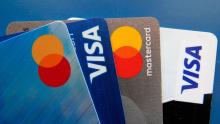Why You Were Rejected for a Credit Card — and How to Fix It

Ever applied for a credit card and received that disappointing “application denied” message? You're not alone. Getting rejected for a credit card can feel frustrating, especially when you’re trying to build or improve your financial life. But here’s the good news: a rejection doesn’t mean you’re stuck forever. It just means it’s time to understand what went wrong — and how to fix it.
Let’s break down the common reasons people get denied and the steps you can take to turn things around.
You Change Jobs Too Often
If you’ve switched jobs several times recently, banks might see you as financially unstable. They want to know that you have a steady income and are likely to repay what you borrow.
What to Do:
- Try to apply when you’ve been at your current job for at least a few months.
- If you’ve been switching within the same field or for better opportunities, mention that when applying.
- A stable work history makes a big difference.
Your Credit Score Is Low
One of the biggest reasons people get rejected is a poor credit score. This can happen due to missed loan payments, unpaid EMIs, or defaulting on previous debt.
What to Do:
- Check your credit score using tools like Credit Karma or your bank’s credit report services.
- Always pay your bills on time.
- Keep your credit utilization (the amount of credit you’re using vs your limit) below 30%.
Tip: If your score is really low, consider starting with a secured credit card to rebuild your credit history.
You Already Have Too Many Credit Cards
Having several credit cards might sound impressive, but to banks, it can signal over-dependence on credit. That can lower your chances of getting approved for a new one.
What to Do:
- Avoid applying for more cards unless you truly need one.
- Focus on managing your existing credit cards responsibly.
- If you’ve closed any old cards, try to keep the ones with a long history open — they help your credit score.
No Credit History at All
Being new to credit can work against you too. If you’ve never had a loan or credit card, banks have no way to predict your repayment behavior.
What to Do:
- Start small with a basic credit card or a secured credit card.
- Alternatively, ask a parent or sibling to add you as an authorized user on their card.
- Use the card regularly and pay it off on time to build your credit profile.
Your Income Is Too Low
Credit card issuers often have minimum income requirements. If your income is below their threshold, they may see you as a risky borrower.
What to Do:
- Include all sources of income on your application — freelance, part-time work, investments, etc.
- Apply for cards that are designed for students or entry-level earners.
- Reapply after a salary hike or a new job.
You’re Applying for Too Many Cards at Once
If you’ve applied for several credit cards within a short time, that’s a red flag. Each application causes a “hard inquiry” on your credit report, which can lower your score and make lenders nervous.
What to Do:
- Space out your applications — ideally, wait at least 3–6 months between them.
- Use pre-approval tools that show your chances of getting approved without affecting your credit score.
- Focus on quality over quantity when applying.
You Requested a High-Limit Card Without a Strong Profile
Applying for premium or high-limit credit cards when you don’t have the income or credit history to back it up is a common reason for rejection.
What to Do:
- Start with a basic or beginner-friendly card.
- Build your credit for a few months or a year, then move on to better cards.
- Make sure you meet all the requirements before applying for higher-end cards.
How to Improve Your Chances of Approval
Once you know what’s causing the rejection, it’s time to fix it. Here’s a quick roadmap to help you get approved next time:
- Apply for a simple, no-frills credit card to start building trust.
- Build a solid credit history by paying on time and using your card wisely.
- Choose banks where you already have a savings account — they may be more likely to approve you.
- Show consistent income and job stability.
- Be patient and strategic. Don’t rush into multiple applications.
Final Thoughts
Getting turned down for a credit card isn’t the end of your financial journey — it’s just a bump in the road. Think of it as a learning experience. Once you understand what went wrong, you can make the right changes and come back stronger. Credit is a long game. Build your foundation, stay consistent, and you’ll not only get approved but also unlock better financial opportunities in the future.
Need help choosing your first credit card or improving your credit score? Drop your questions in the comments — we’re here to help.
Comments
I applied for a credit card…
I applied for a credit card with Michaels but it is denied- I do not understand as I have an excellent credit history - pay all my bills in full.
Is my reply admitted? No…
Is my reply admitted? No confirmation given.
If your Michaels credit card…
If your Michaels credit card was denied, check your credit score and contact the card issuer for the exact reason. RatingOK.com is an India-based site for general credit insights.




Leave a Reply